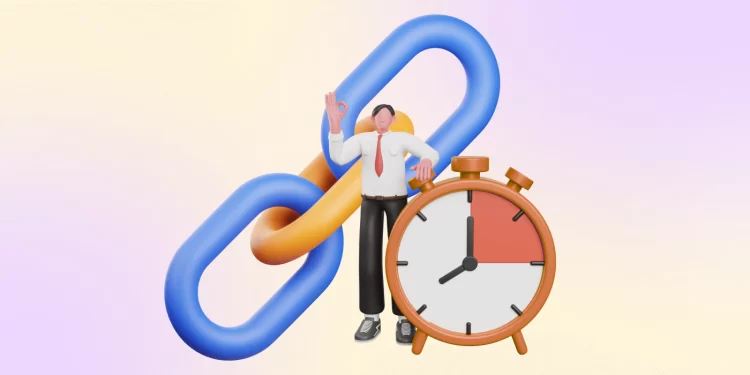How does automatic link expiration boost confidentiality?

Keeping personal and private information confidential is a growing challenge in our digital, internet-connected world. With hackers, data breaches, and cyber threats becoming more sophisticated daily, using every tool available to safeguard sensitive data and communications is crucial. One powerful security feature that helps do just that is automatic link expiration for sharing private online notes and files.
Before we dive into link expiration, let’s quickly cover what private online notes are all about. You can create and share These encrypted digital notes or messages via a secure service or application. The contents remain private and unreadable except to anyone you grant access to. To send a private note, you compose it like an email, attaching any files you want. The service then generates a unique secure link that unlocks and displays the decrypted contents when a recipient open. Most allow you to password-protect notes, too, for an extra layer of security.
Why is link expiration a game-changer for privacy?
How does automatic link expiration help boost confidentiality for these private notes? In short, it keeps your sensitive data from lingering on the internet indefinitely and gives you complete control over its lifespan and availability. With a regular email, internet message, or shared file, once you hit “send”, that content is basically out of your hands forever. Depending on the situation, it could remain accessible and floating around for weeks, months, or even years – exponentially increasing the chances of it being intercepted or falling into the wrong hands through hacking or unauthorized access.
But with link expiration for private notes online, you, as the sender, get to determine precisely how long that confidential information will be available before it self-destructs and is rendered utterly inaccessible to anyone, including you. Most private note services allow you to set custom expiration periods like:
- 7 days
- 30 days
- 6 months
- 1 year
- Custom date and time
Once that expiration clock runs out, the unique secure link stops working. Even if it gets intercepted or compromised after that point, any bad actors are locked out and unable to access the encrypted contents. It’s essentially one-time, self-destructing data. No more worrying about old private files being out there indefinitely.
Additional layers of protection
While automatic link expiration for private notes offers a fantastic baseline of security and privacy protection by itself, most services make it even stronger by coupling it with other robust defensive measures, such as:
- End-to-end encryption, so only the sender and recipients can decode contents
- Password protection, requiring knowledge of a passphrase to unlock notes
- Read-once restrictions, allowing just one secure viewing of contents
- Customizable expiration durations, ranging from hours to years
- Remote “kill switch” to revoke access to notes at any time
- Tracking and notifications on notes being accessed
- Optional two-factor or multi-factor authentication requirements
With multiple overlapping layers of security, your private and sensitive information stays entirely under your control. Even if one layer gets bypassed, formidable remaining barriers prevent unauthorized access.






